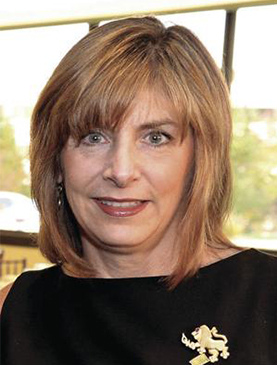07/23/2021
Federation Allocations Mirror That of Prior Year
- Share This Story
McKENNA CORSON | STAFF REPORTER
Article reprinted with permission from Cleveland Jewish News
The Jewish Federation of Cleveland saw an almost exact replica of last year’s recommended allocations of its campaign funds raised this year as the allocations committee sought to continue its support to agencies ravaged by COVID-19.
“Overall this year, there weren’t really a lot of significant shifts in our allocation to our agencies because we wanted to give our agencies a sense of stability with all the COVID changes that were affecting them,” Beth Wain Brandon, Federation allocations committee chair, told the Cleveland Jewish News July 12.
She attributed the maintaining of funding, despite all the disturbances caused by the pandemic, to the Federation’s record-breaking 2021 Campaign for Jewish Needs. Over 12,000 donors led to the raising of $33,105,529 in last year’s campaign.

Beth Wain Brandon
“We worked really hard on having a successful campaign,” Wain Brandon said. “By having a successful campaign, we were able to keep most of our allocations flat to last year. This in return gave a really strong sense of stability to all our agencies.”
Total distributions by the Federation will be $30,744,236, a decrease of about $122,600 over the 2020-21 total of $30,866,836. Of this year’s total, about 56% or $17,066,407 will go to local agencies and programs; 41%, $12,677,829 will go to national and overseas endeavors, and 3%, $1 million, will go toward security.
The main shifts in allocated funds from last year’s 2020-21 fiscal year to this year’s 2021-22 fiscal year are an overall slight decrease in allocated funds to education, an increase in the Fund for the Jewish Future and a small decrease to national agencies.
The total change in education funding was a decrease of $58,000, which was comprised by a couple factors. First, Wain Brandon said a $83,000 decrease for education funding came because the Federation is no longer directly funding the legacy costs of the former Siegal College program; the Jewish Education Center is taking over the direct funding and oversight of Siegal College instead of having the allocations committee do so. And, within the education category, Wain Brandon said there was a $25,000 increase to the Fund for the Jewish Future because the families that support the fund increased their gift this year.
Wain Brandon explained that alterations in amounts given to local beneficiary agencies don’t typically change on a yearly basis. The two changes that did occur this year to local beneficiary agencies were due to the affiliation of Menorah Park and Montefiore – resulting in one allocated sum combining the amounts the long-term care facilities used to receive individually – and Yeshiva Derech Hatorah receiving approval by the board of trustees to be added to the Federation’s education agencies.

J. David Heller
“Allocations are given to our local beneficiary agencies of the Federation, national agencies that we decide on and our overseas partners,” Wain Brandon said. “It’s not often that our local agencies change from year to year. It’s unusual to add a new agency in.”
When it comes to determining how much money the committee recommends for each organization or program, the Federation has liaison teams that go into each agency and determine how they’re doing financially and programatically throughout the year. The allocations committee also tracks the systemic and agency-specific issues year over year to see if there are notable trends, issues or aspects to focus on going forward.
All of the money the committee allocates is unrestricted. The term unrestricted funds means the organizations and programs can use the money in any way they choose.
“Our funding is very important to our agencies,” Wain Brandon said. “For some agencies, our funds are 40%, 50% of their budget. Other larger agencies, we’re a much smaller percentage of their budget, but they really appreciate the partnership they have with the allocations committee and the Federation.”
The impact COVID-19 had on Federation agencies was “huge,” Wain Brandon said. In response to the pandemic, the Federation raised more than $15 million in emergency funding and established the Coronavirus Response Oversight and Distribution Committee.
The COVID-19 committee helped “over and above” the allocation committee with COVID-related costs, Wain Brandon said. The committee provided grants that agencies could use to combat pandemic-specific needs, like purchasing personal protective equipment, dividers for schools and sanitation stations.
“The COVID committee and the allocations committee worked hand in hand over the past year to figure out where the needs were the most, and to assess them within the larger context of each agency in the community,” Wain Brandon said. “This allowed the allocations process to continue as usual, to cover operating costs.”
Federation board chair J. David Heller applauded the allocation committee’s work this year, noting the difficult edge COVID-19 provided.
“Each year, the Federation’s allocations committee carefully analyzes the community’s needs and proposals from our beneficiary partners to determine how to distribute funds fairly and with the greatest impact,” Heller said in an emailed statement to the CJN July 13. “While never an easy task, this year was particularly difficult as the needs are so great as our diverse community tries to move forward through the COVID-19 pandemic. The committee, under the direction of Beth Wain Brandon, did an outstanding job of maximizing the reach of these critical funds raised by our generous community.”

